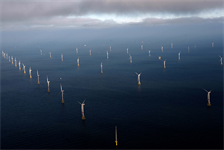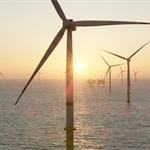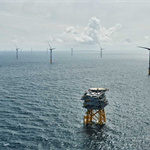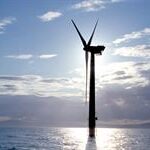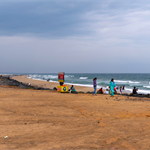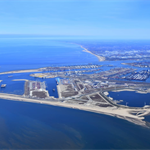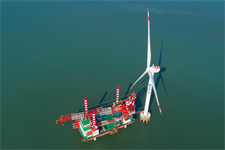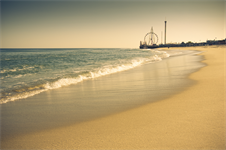RWE and Commerzbank plan 1GW offshore wind with new German fund
Energy Disrupter
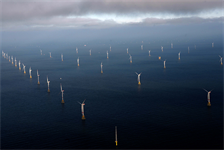
Germany’s RWE and Commerzbank have unveiled plans to build a 1GW offshore wind farm and offer medium-size industrial companies the chance to take an equity share in the project and/or sign long-term power purchase agreements (PPAs) for electricity from it. To enable this, the two companies have signed a memorandum of understanding to create a “Green Mittelstand Fund” specifically for medium-sized companies.
RWE and Commerbank say they want to apply for a seabed permit for the wind farm within the framework of future tenders, in accordance with the planned amendment to the German Offshore Wind Energy Act, known as WindSeeG, announced as part of the federal government’s easter package, which aims to achieve 70GW of offshore wind by 2045.
RWE plans to hold 51% of the shares in the wind farm and will develop, build and operate it. The remaining 49% share will be offered to medium-sized companies by Commerzbank via the Green Mittelstand Fund, offering individual financing and credit solutions for the equity investments in the offshore wind farm. Alternatively, companies can buy green electricity from the wind farm via PPAs starting with a tranche corresponding to a capacity of 5MW, it said.
With the first auctions under the new framework expected in 2023, the amended law is currently subject to parliamentary debate and anticipated to formally become law by the end of this year.
Ulf Kerstin, chief commercial officer for offshore wind at RWE, said further modifications to the amended Act are needed before that happens. “The amendment to the legislation should be modified in such a way that it really does give a boost to the transformation of Germany as an industrial location because electricity from offshore can be offered at competitive prices.”
‘Unnecessarily expensive’
In a statement, RWE and Commerzbank said: “One prerequisite for this is to dispense with the negative bidding component, which the current draft law provides for, when designing the bidding conditions for offshore wind turbines on so-called non-pre-surveyed areas. This bid component would make green electricity unnecessarily more expensive for German companies, which are already facing record high energy prices”.
They also call for improvements in the criteria for the award procedure. “They should be chosen in such a way that they allow differentiation between the bids and at the same time serve the overriding goal of providing green electricity in a smart and system-serving way.”
German offshore wind farm operator association the BWO has also called for changes to the draft law. “We still see the auction design as a major sticking point,” Stefan Thimm, the BWO’s managing director, said at a recent offshore conference in Berlin. “In its current form, the WindSeeG neither provides the right incentives for investments in offshore wind projects nor for decarbonising the industry. We therefore urgently advise taking the focus away from the so-called “bid component” and giving greater consideration to the system benefits of the electricity produced offshore from the outset.”
The BWO suggested the bid component for the sites that have not been pre-surveyed increases industrial electricity prices by up to €20-21/MWh. “Extrapolated that would mean more than €14 billion in additional costs for industry alone by 2045. That’s stupid money that is actually urgently needed for the system integration of the electricity produced offshore,” Thimm said.
He added: “Unfortunately that’s not the only weakness we’re seeing. Improvements also need to be made in the CFD segment.”

